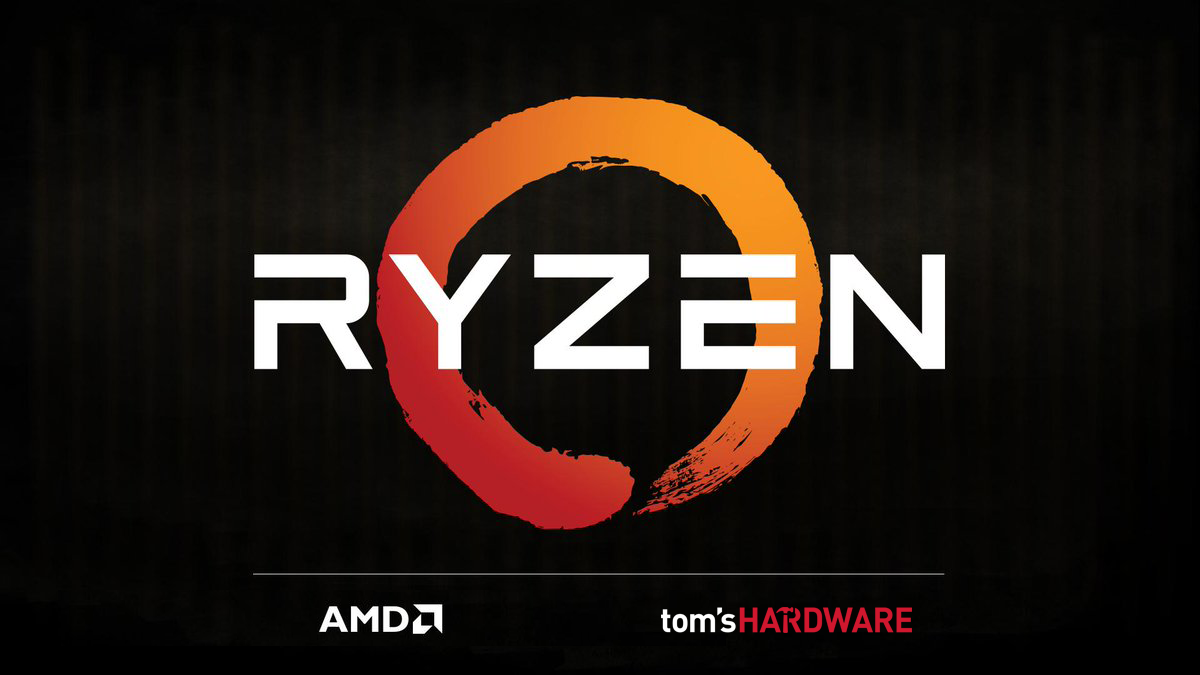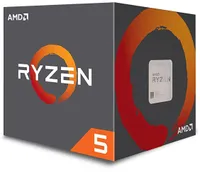AMD Ryzen AMA
Last week AMD joined us for a very special Ryzen AMA. Dive into our lengthy digest to learn about the past, present, and future of Ryzen.
TDP, RAM Performance, and APUs
[Updated 4/17/2017 at 1:15 pm PDT to include a clarification regarding APUs. That answer is on this page toward the end.]
First off, let's give a big thank you to AMD for stopping by to answer all the insightful questions presented by our community members. Scheduling this AMA took a bit of work on their end, especially during such a busy launch year, and for that, the Community Staff as well as our readers are much obliged to everyone at AMD for taking the time to engage with the enthusiastic members of our community.
And of course, we're deeply appreciative of Don Woligroski for the in-depth responses given to each question posted by the Community. We'd also like to thank Sam Tehrani and Erin Maiorino for all their help putting this together.
Want to read the AMA in its original format? You can check out the original thread here. While you're there make sure to enter our second and final giveaway for the ASRock X370 Taichi AM4 Motherboard. Below you'll find the AMA in its entirety, formatted for your convenience and edited for clarity.
Our AMA With AMD
turkey3_scratch: When it comes to TDP, how exactly are the values created? I notice both the Ryzen 7 1800X and 1700X are labeled as a 95W TDP, however, there are differences in the frequency between the two, and looking at the data on these processors I would think the 1700X would use less power than the 1800X. How come the TDPs are the same?
Do you think the current TDPs for these processors best exemplify average power under maximum load (i.e. torture test) or a typical heavy load (i.e. gaming)? Do you think any more data relating to the power of these processors would be helpful to consumers under the specifications, such as the peaks in an oscilloscope graph?
A lot of people like to overclock but when overclocking the TDP no longer is the same and requires some guesswork. Do you think there could be some form of data presented to consumers that could tell them more about the power requirements of the processor if they overclock to certain amounts and voltages, or do you think it's too unpredictable and/or best left to third party sites' independent testing?
Get Tom's Hardware's best news and in-depth reviews, straight to your inbox.
DON WOLIGROSKI: This is a can of worms, but I'll do my best. A couple points to frame the conversation:
1. TDP is not electrical watts (power draw), it's thermal watts.
2. Published processor TDPs are often rounded up to fit a desired specification. For example, AM4 motherboards are specd to run processors with 65W and 95W TDPs. It gives motherboard manufacturers and system builders a thermal framework to fit within. At AMD we call the Ryzen 7 1800X, Ryzen 7 1700X, and Ryzen 5 1600X 95W processors, but in practice there might be a couple of thermal watts difference during operation due to a number of factors.
So right off the bat, power draw conclusions based on processor TDPs are probably not going to be perfect, although they can give you a rough idea.
To be frank, people tend to overspec the heck out of their PSUs. Primarily I think important to look for a well-reviewed model from a reliable manufacturer, rather than to worry about processor power draw on 95W Ryzen CPUs. Heck, 125W FX processors tend to run fine on a decent 450W juice box from my experience, but Igor at Tom's Hardware frankly knows a hell of a lot more than I ever will about PSUs. He's your guy when it comes to power draw.
James Mason: Will AMD eventually be able to fix the RAM clock speed issues through software updates alone?
DON WOLIGROSKI: As long as there isn't a physical motherboard hardware limitation, we are absolutely able to address RAM performance improvements through the motherboard BIOS.
Some perspective here - Socket AM4 is brand new, and our first DDR4 socket. Our competition took a year to get the RAM speed and stability they enjoy, but in the month since we launched Ryzen 7 we've gone from testing our original data at 2400 MHz to giving Ryzen 5 reviewers stable 3200 MHz B350 platforms to test with thanks to BIOS updates. Consumers can expect those updated BIOSes to arrive for X370 motherboards in the Ryzen 5 launch time frame around April 11th for X370 boards.
That's not to say we've achieved perfection in a month. We still have a lot more work to do on the AM4 platform, but the strides we've already taken are incredible. We're also tracking toward another BIOS update in May to help with overclocked memory stability and performance even more, and we have a standing team of people working to develop this indefinitely.
The best part of this is, memory speed is a big piece of the platform, and rears its head in platform-limited applications like games running at the relatively-low 1080p resolution. So we're really happy about the improvements we've made, and this is definitely a priority for us going forward.
imrazor: How will you price the lowest end 4 core, 8 thread Ryzen 3 processor?
DON WOLIGROSKI: We haven't disclosed any Ryzen 3 pricing yet, but you can probably where prices will be relative to Ryzen 5. I'm also sure we haven't announced a 4c/8t version, Ryzen 3 specs will be revealed later.
Sorry, wish I could say more. But I invite you to enjoy the 4c/8t Ryzen 5 1400 when it's released on the 11th at a suggested price of $169 USD!
atljsf: Now that AM4 motherboards support APUs, what kind of APUs can we expect? Will they have 4 cores and 4 threads? Perhaps 4 cores and 8 threads? Do you have any information of TDP limit? Will they hit 65 Watts TDP?
DON WOLIGROSKI: I can't comment on unannounced products and specifications, but the Ryzen-based APUs will be awesome. That is all I can say.
[Update: Don contacted Tom's Hardware to make he following addendum to this answer: "In the second half of 2017, we will be introducing APUs for Socket AM4 based on our newest Bristol Ridge design, which is currently our newest notebook part. These continue to offer excellent Radeon graphics performance and are a great entry point for eSports gamers. We haven’t yet announced any release dates for a Zen-based APU.]
redgarl: With Nvidia pursuing self-driving car opportunities and Intel looking at Optane, is there a new focus for AMD in the upcoming future?
DON WOLIGROSKI: Optane: The elephant in the room is that Intel has made a very expensive cache drive available. Remember the first SSDs? Been there, done that. It says something that they don't recommend Optane for users who already have an SSD as their primary drive.
As for AMD, our finger is definitely on the pulse of storage tech. Of course I can't comment on unannounced products, so if we did have something in the works I couldn't talk about it.
MORE: Best CPUs
MORE: Intel & AMD Processor Hierarchy
MORE: All CPU Content
Current page: TDP, RAM Performance, and APUs
Next Page Ryzen 2, Wraith Coolers, and Infinity FabricThe Tom's Hardware forum community is a powerful source of tech support and discussion on all the topics we cover from 3D printers, single-board computers, SSDs, and GPUs to high-end gaming rigs. Articles written by the Tom's Hardware Community are either written by the forum staff or one of our moderators.
-
BugariaM Many people ask clear and technically interesting questions, hoping to get the same answers ..Reply
And they are answered by a person who is far from the technical plane and the engineering questions.
He is a manager, he is a salesman.
His task is more blah-blah, only for the sake of an even greater blah-blah.
Thanks, of course, but alas, I found nothing interesting for myself here. -
genz I intensely disagree Bugariam. All the info he could provide is provided and he asked people actually close to the metal when he did not know. You will not get tech secrets or future insights from ANY AMD or Intel rep on tomshardware; Its far too public and every drop of information here is also given to Intel, Nvidia, and any other competitors hoping to steal AMDs charge. What we did get is a positive outlook on AMD's products.... when you compare that to what we already had from Toms and other publishers who have spent years watching Intel lead and thus don't have faith (or simply got their jobs for their love of Intel) was major.Reply
I personally think he did not remind us that the current crop of 8 core consoles will inevitably force AMD's core advantage to eat all the competition Intel currently has. In 5 years every single Ryzen 1 processor will terrorize the Intel processors they competed with.... Ryzen 5s will have 50% performance gains over Kaby i7 etc etc.
Intel knew this was the future, that is why all Intel consumer processors have stuck to 4 cores to try and keep the programming focus on their IPC lead. Now that that lead is only 6% and the competition has more cores, we will see the shift toward 6+ cores that we saw when Core 2 Duo came and made dual FX and Dual Pentiums viable mainstream gaming chips, and when Core Quad and Nehalem made quad cores viable gaming chips.
As the owner of a 3930k, you can read my past posts and see I have always said this is going to happen. Now, a month after you are seeing the updates come out already. Wait till there are 12 threaded games on the market (this year I expect) and you will see just how much the limitation of the CPU industry's progress was actually created by Intel's refusal to go over 4 cores in the mainstream.
For all the talk of expense creating 6 and 12 core processors, Intel could have had consumer 8 core low clock chips in mainstream for prosumers and home rendering types years ago and they didn't. My theory is that they are scared of heavily threaded applications in the mainstream creating opportunity for competition to outmanouvre their new chips based on slower, more numerous cores. It's not like a 2ghz 6 or 8 core in the mainstream was never an option. -
Calculatron I remember being really excited for the AMD AMA, but could not think of anything different from what everyone else was already asking.Reply
In retrospect, because hindsight is always 20/20, I wish I would have asked some questions about Excavator, since they still have some Bristol Ridge products coming out for the AM4 platform. Even though Zen is a new architecture, there were still some positive things that carried over from the Bulldozer family that had been learned through-out its process of evolution. -
TJ Hooker "TDP is not electrical watts (power draw), it's thermal watts."Argh, this kind of annoys me. "Electrical watts" and "thermal watts" are the same thing here, power draw = heat generated for a CPU. There are reasons why TDP is not necessarily an accurate measure of power draw, but this isn't one of them.Reply -
Tech_TTT Reply19562297 said:Many people ask clear and technically interesting questions, hoping to get the same answers ..
And they are answered by a person who is far from the technical plane and the engineering questions.
He is a manager, he is a salesman.
His task is more blah-blah, only for the sake of an even greater blah-blah.
Thanks, of course, but alas, I found nothing interesting for myself here.
I agree with you 100% ... Ask me anything should include people from the R&D department and not only sales person. or maybe a team of 2 people , Sales and Research. or even better? the CEO him/herself included.
-
genz Reply19566458 said:"TDP is not electrical watts (power draw), it's thermal watts."Argh, this kind of annoys me. "Electrical watts" and "thermal watts" are the same thing here, power draw = heat generated for a CPU. There are reasons why TDP is not necessarily an accurate measure of power draw, but this isn't one of them.
That is simply not true.
Here's an example. 22nm and 18nm TDP is usually far higher than actual draw because the chip is so small any cooling solution has a much smaller surface area to work with. Another example: When Intel brought over onboard memory controllers from the bridge to the CPU socket, the TDP of their chips went unchanged because (thermally speaking) the controller was far away enough from the chip to never contribute to thermal limitations... despite the temperature of the chip rising much faster under OC because of the additional bits, and the chips themselves drawing more power due to more components. A final example: I have a 130W TDP chip that without overvolting simply cannot reach a watt over 90 even when running a power virus (which draws the max power the chip can draw - more than burn-in or SuperPi). The TDP rating is directly connected to the specific parts of the chip that run hot and how big they are, not their true power draw. This is why so many chips of the same binning have the same TDP despite running at lower clocks and voltages than each other.
Further to that, TDP is rounded up to fixed numbers to make it easy to pick a fan. True power draw is naturally dependent on how well a chip is binned, and super badly binned chips may still run with enough volts so they usually add 10 to 20 watts for the thermal headroom to make that possible. -
TJ Hooker @genz I never said TDP is equal to power draw, in fact I explicitly said there are reasons why it isn't. I simply said that "thermal watts" (heat being generated by the CPU) are equivalent to "electrical watts" (power being consumed by the CPU). At any given moment, the power being drawn by the CPU is equal to the heat being generated.Reply
I'll admit, I'm sort of nitpicking a small part of the answer given in the AMA regarding TDP, I just felt the need to point it out because this is a misconception I see on a semi regular basis.



